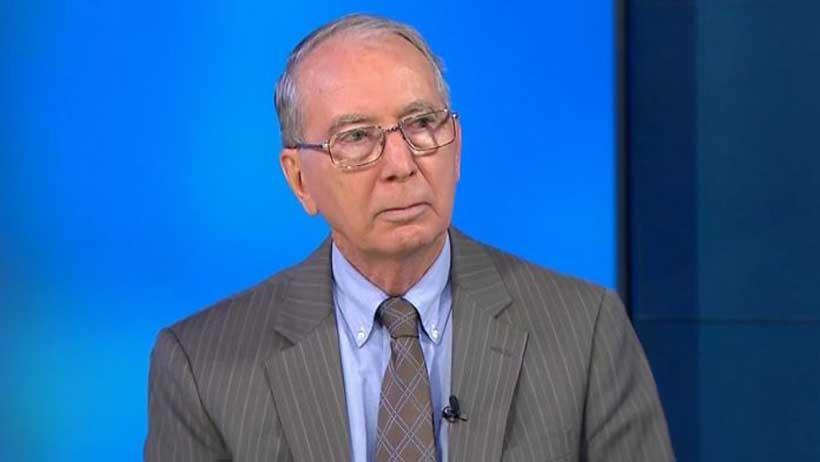By
Kester Kenn Klomegah
Africa-Press – Mozambique. In this exclusive interview, Professor David Shinn, a former top U.S. diplomat and now an adjunct professor of international affairs at George Washington University’s Elliot School of International Affairs, discussed Washington’s changing policy initiatives for Africa, from Obama through Biden to Trump, and highlighted some important policy differences, but the most surprising aspect of U.S. policy towards Africa is Trump’s drastic approach relating to significant issues such as democratic practices and security, investment and the economic sector, and especially trade.
Professor Shinn, who has a diverse career in the foreign service of the United States, including his ambassadorship to Ethiopia and Burkina Faso, also offered in-depth views on emerging multipolarity, its influence on developments in the Global South, and the lingering question of how Africa is balancing between traditional western powers and key Arab players, China, and Russia. He underlined China’s valuable contribution to various economic sectors, spanning these three decades, and the implications of Russia-China collaboration in Africa. Here are the interview excerpts:
How would you interpret the concept of multipolarity? Where exactly do we locate Africa in terms of democracy (political governance) and development?
David Shinn: Multipolarity is a move away from unipolar Western global influence, led by the United States, to two or more centers of global power. With multipolarity, the West remains as one source of global influence, and China sees itself as leading the other, which includes much, perhaps most, of the Global South. China and some of its allies, such as Russia, are pushing hardest for the creation of a multipolar world in an effort to dilute Western influence. There are certainly countries and perhaps even regions that do not wish to align with either the West or a Global South led by China. They could eventually become an independent source of global influence.
The fifty-four countries in Africa constitute the largest bloc of the Global South and have been courted assiduously by China throughout the 21st century. The degree to which they pursue Western (as opposed to Chinese) democratic practices and have succeeded in economic development varies enormously. More authoritarian African states are generally more comfortable with the China governance model, while those with stronger democratic backgrounds are reluctant to take sides or may even quietly prefer to remain tied to the West.
And how would you argue that Africa is increasingly facing serious challenges in pursuit of the goals you discussed above? How helpful could multilateralism and economic diplomacy be?
Shinn: I believe most African governments are trying to maintain cordial relations with both the West and a China-led Global South. They are aware of the trade, aid, investment, and security benefits available in both poles. It is not in their interest to alienate one or the other. Balancing policy between these two poles, however, can be challenging, especially when one or both of them apply more pressure to adopt their governing principles or to accept their policy positions in international forums. The more adept African governments have managed to maintain good relations with both the West and the China-led Global South. Those that rely exclusively or almost exclusively on a particular Western country, China, or Russia will, I suspect, eventually find themselves in a situation they will regret.
United States and Africa: Comparatively, how would you assess, let’s say, Barack Obama and Joe Biden’s (both Democrats) and now Donald Trump’s (Republican) foreign policies toward Africa?
Shinn: Each administration offers new initiatives for Africa, and there are occasionally important policy differences, but the most surprising aspect of U.S. policy towards Africa is its continuity. Unlike other parts of the world, there are rarely radical policy changes. It is also important to understand that all American administrations have kept Africa at the bottom of the regional foreign policy priority list. This does not mean Africa is unimportant, but it does mean that it comes after Europe, Asia, Latin America, and the Middle East.
The most important difference among Obama, Biden, and Trump concerning Africa is one of style. Obama and Biden professed to have considerable interest in the continent. During two administrations, Obama visited Africa on several occasions. During one administration, Biden visited once near the end of his term. But both Obama and Biden talked a better Africa game than they played. During his first administration, Trump did not visit Africa. He showed little interest in the continent during his first term and appears to be following the same approach now.
Trump administration foreign policy, including Africa policy, is highly transactional and based on making deals that are perceived to benefit the United States. The Trump administration quickly dismantled the US Agency for International Development (USAID), one of the most important institutions for US-Africa policy during the Obama and Biden administrations. Trump apparently perceived USAID as not benefitting the United States. The Africa policy focus of the Trump administration is increased trade and investment. Both of these goals rely, however, on actions by the American private sector, and the US government has limited ability to encourage private sector engagement. The administration also aims to resolve African conflicts and has already helped ease tensions between Rwanda and the Democratic Republic of Congo. It organized the Quad (US, Saudi Arabia, Egypt, and UAE) in an effort to force a ceasefirein Sudan. While not yet successful, it emphasizes Trump’s focus on peacemaking and his pursuit of the Nobel Peace Prize.
moderndiplomacy
For More News And Analysis About Mozambique Follow Africa-Press






